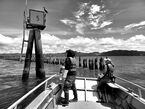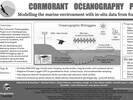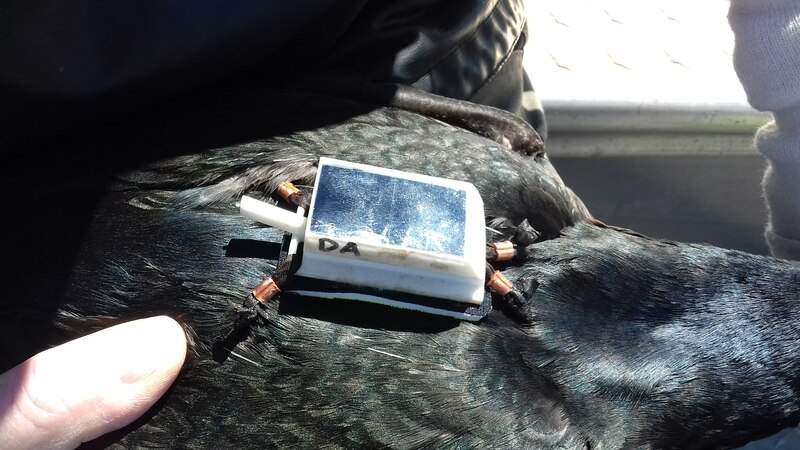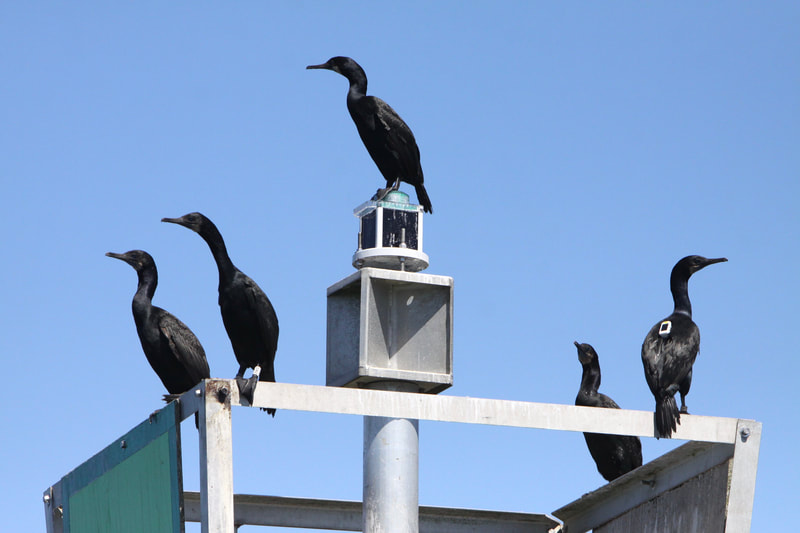Project Background
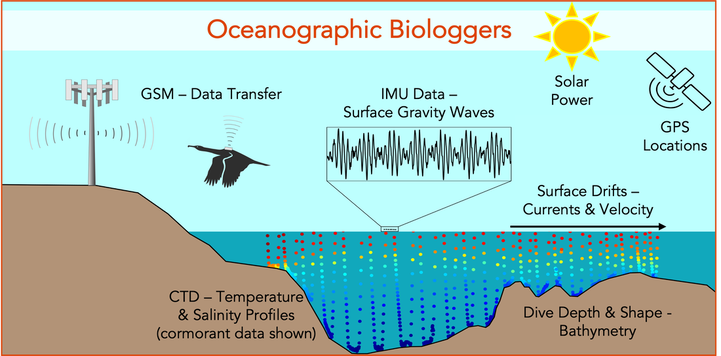
The Cormorant Oceanography Project is an interdisciplinary collaboration between physical oceanographers and seabird ecologists based at Oregon State University. Our project is also built on collaborations with global partners to deploy tags on cormorant species found in coastal oceans around the globe. Focal regions include the Asia-Pacific, the Arabian Gulf, and the Baltic Sea.
The coastal ocean is a dynamic and complex region and environmental conditions are challenging to adequately sample from satellites, oceanographic vessels, or autonomous vehicles. The development of miniaturized biologging tags for marine birds, such as cormorants, offers a unique opportunity to sample environmental conditions along the daily foraging paths of diving seabirds. We are refining and deploying dozens of solar-powered, network-connected (GSM) biologging tags to measure in-situ environmental conditions along the daily foraging paths of cormorants. With these biologging tags, we are developing processing algorithms to estimate vertical profiles of temperature and salinity, surface currents, bathymetric soundings, sea-surface waves, and air/sea temperature contrast. We assimilate these data into oceanographic models to increase their skill and improve our understanding of coastal ocean regions around the globe. Check out our Locations & Species page to see where we've been working. |
Project Goals
With partnerships in 20 countries we have deployed tags on 15 different cormorant species to date. These collaborations provide unique opportunities to sample diverse marine environments, gather information on ecology and habitat use of numerous cormorant species, and support ecological research carried out by our international partners.
We are also working to establish protocols for automated data processing and near-real-time publishing of these diverse biologging datasets. See our data and publications pages to follow the progress of our work.
With partnerships in 20 countries we have deployed tags on 15 different cormorant species to date. These collaborations provide unique opportunities to sample diverse marine environments, gather information on ecology and habitat use of numerous cormorant species, and support ecological research carried out by our international partners.
We are also working to establish protocols for automated data processing and near-real-time publishing of these diverse biologging datasets. See our data and publications pages to follow the progress of our work.

